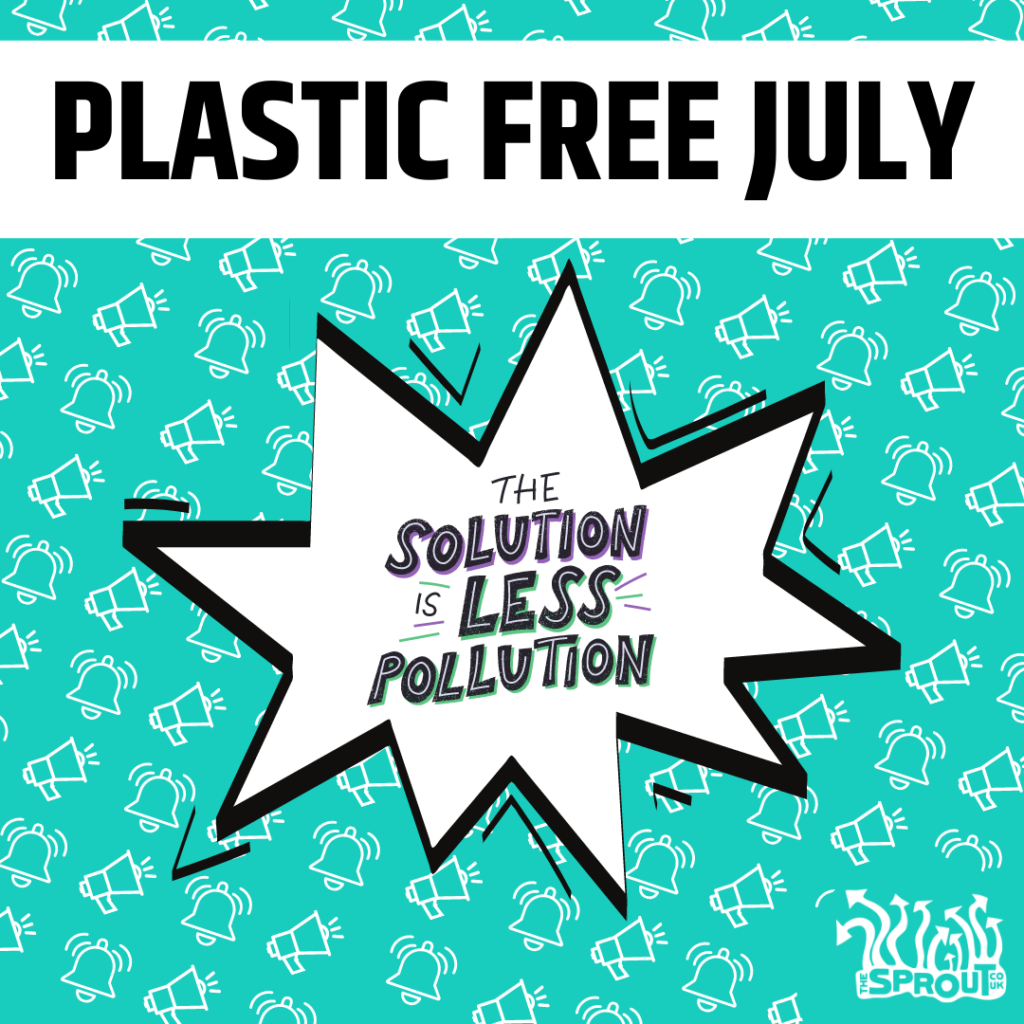Plastic Free July is a worldwide awareness month and challenge to help millions of people be part of the solution to plastic pollution.
What is Plastic Free July?
The Plastic Free July movement helps provide information and resources to help people reduce single-use plastic waste every day, whether that’s at school, university, work, home, or when you’re eating out.
The aim of this campaign is to help people realise that it’s easier to go plastic-free than they may have thought. By switching to single-use plastic-free alternatives, we will have cleaner streets, oceans, and beautiful communities.
Why is going plastic-free important?
According to My Recycling Wales, most households throw away at least 40kg of plastic every year!
Since plastic is non-biodegradable, it is vital to recycle it properly to prevent it from ending up in the environment – our rivers, oceans, beaches, mountains etc. However, only about 1/3 of household plastic packaging is currently recycled. This is because recycling plastic is extremely difficult because all the plastics collected for recycling need to be sorted into different groups depending on which polymers they contain.
Unfortunately, the plastic that is recycled cannot be recycled forever. If the polymers in the plastic are mixed together when the plastic is recycled, it will weaken the recycled product. This means that after the plastic has been recycled a few times, it’ll still just end up in our environment – either in landfill or our oceans.
Plastics In the Ocean
If plastics enter the oceans, they eventually end up in Gyres which are like huge vortexs accumulating rubbish almost into an island. There are 5 of these: the North Atlantic Gyre, the South Atlantic Gyre, the North Pacific Gyre, the South Pacific Gyre, and the Indian Ocean Gyre.
These bigger pieces of plastic such as fishing lines, netting, and plastic pack rings for cans are some of the many plastics that can injure and kill so many ocean animals. UNESCO estimates that a whopping 100,000 marine animals die every year due to plastic pollution!
Over time, these plastics will shrink and break down into smaller pieces called microplastics. Microplastics in our oceans mean that it’s impossible for marine birds and ocean creatures to not ingest plastic waste. This can also end up in our bodies by consuming food from our oceans such as fish.
Why should you get involved in Plastic Free July?
Unfortunately, there is no simple, cheap, or easy collection method for the waste that accumulates in the oceans.
To try and tackle the problem, a popular solution has been to stop producing plastic waste. However, as demand is high for plastic products, production cannot just stop. This is why Plastic Free July has gained so much support, as it helps people everywhere understand that we are not reliant on plastic products. Instead, we can make changes to reduce our plastic consumption and waste, which therefore may help to decrease plastic production.
How can you get involved?
There are so many ways that you can get involved in Plastic Free July. Why not raise awareness of the movement with your friends and family, and on social media? You could also have a go and challenge yourself to go plastic-free or make changes to your buying habits to help cut plastic pollution. Here are some great ideas to get you started.
Plastic Free July also have some awesome resources like this ‘My Choices Checklist‘ to help you choose what to avoid, how you can avoid it, and the impact that it will have on the environment. It’s great to keep you on track!
Related Information
TheSprout has a really comprehensive Environment info page for more info on environmental issues.

